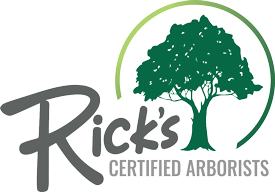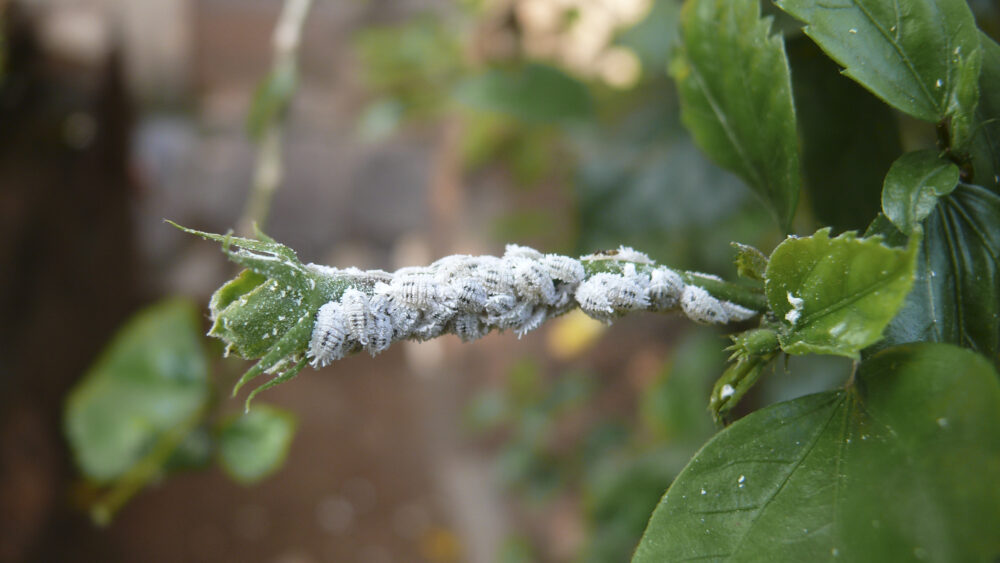Scale insects are a common source of stress for local trees and shrubs. Much of the time, natural predators keep scale insects under control, but there are also times when an infestation continues unabated, which can injure your trees and plants. Below, our Certified Arborists at Rick’s Certified Arborists share what you need to know about scale insect control.
What Are Scale Insects?
There are two types of scale insects: soft scales and armored scales. Soft scales are about 1/8 to 1/4 inch long, and they feed on the phloem tissue of trees and shrubs. As they feed, they excrete excess sap, which is called honeydew. Honeydew attracts flies, wasps, and ants, so if you see any of these flocking to a tree or shrub in your yard, you may want to spend some time looking for soft scales.
Armored scales are about half the size of soft scales, and they feed on plant cells. They don’t excrete honeydew and they often blend into the bark of the trees they attack, which can make identifying infestations difficult for property owners. They may only notice infestations once damage has already been caused; this is why regular residential tree inspections are so important! (Learn more: why hire an arborist.)
How to Prevent Scale Insects
There are a few ways to control scale insects, but not as many ways to prevent infestation from occurring in the first place. If you’ve had issues with scale insects in the past, or infestations are common in your area, you may want to consider using an application of horticultural oil prior to bud break, when plants are still dormant. The oil must be applied to all of the tree and shrub. You may also want to do a summer spray based on when eggs are likely to hatch.
How to Control Scale Insects
You can control scale insects through natural, mechanical, and chemical means. Some of these methods are more effective than others; an arborist can help you determine the best option for your property. (Learn more: what does an arborist do?)
Natural Control
Much of the time, Mother Nature takes care of scale insects on her own. Ladybugs and parasitic wasps feed on scale insects, providing natural population control.
Mechanical Control
Mechanical control may work in cases of small infestations in small trees or shrubs. The infested areas can be pruned and discarded, which will reduce the scale population.
Chemical Control
Chemical control is the best method for controlling large infestations. Dormant oil and summer sprays, as described above, can help control populations; a contact insecticide can be used when scales are active.
Systemic insecticides are considered the gold standard for scale infestations. They can be administered via trunk injections, foliar spray, drench, or soil injection. These insecticides circulate inside a tree or shrub, so they control scales without affecting beneficial insects or the risk of coming into contact with pets, animals, and children.
Learn More About Scale Insect Control
Contact Rick’s Certified Arborists today to schedule a residential tree inspection to check for signs of scale infestation or to learn more about insect and disease control.


Comments are closed.